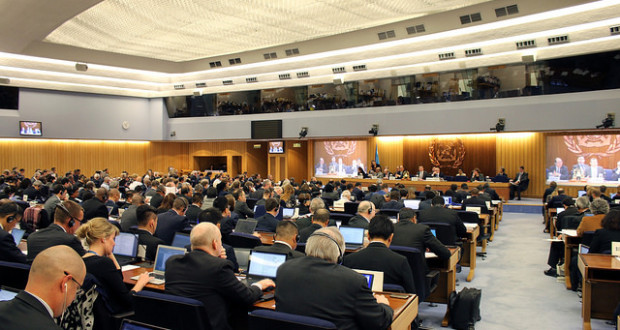MEPC 69 witness to a pivotal development for the Baltic ports
Environmental efforts in the Baltic region reached another milestone at the 69th meeting of the Marine Environment Protection Committee (MEPC), which took place in London, throughout the last week. The International Maritime Organization (IMO) agreed that the restrictions banning sewage discharge from passenger vessels into the Baltic Sea will take effect by 2021.
 Thus, the Baltic Sea became the first region in the world, to see the passenger ships sailing its waters bound to discharge all their sewage at port reception facilities (PRFs) or handle it with a certified on-board treatment plant. In certain cases of direct passages between St. Petersburg area and the North Sea, the deadline shall be pushed until 2023. New ships built in or after 2019, will become subject to these requirements earlier.
Thus, the Baltic Sea became the first region in the world, to see the passenger ships sailing its waters bound to discharge all their sewage at port reception facilities (PRFs) or handle it with a certified on-board treatment plant. In certain cases of direct passages between St. Petersburg area and the North Sea, the deadline shall be pushed until 2023. New ships built in or after 2019, will become subject to these requirements earlier.
While the IMO pronounced the Baltic Sea a special area for sewage within MARPOL Annex IV back in 2011, this status could only become effective once necessary sewage management infrastructure has been developed. The MEPC meeting last week saw all Baltic coastal countries confirm that adequate PRFs are in place.
More than 35 years have passed, since the issue of passenger ship waste management has been discussed for the first time in 1980, at the first meeting of the Helsinki Commission (HELCOM). The topic never left the agenda, leading to the creation of the Baltic Sea PRF strategy in 1996, followed by the priority list of ports marked for PRF upgrades in 2010.
The Baltic Ports Organization (BPO) also retains a high interest in the topic of obligatory delivery of sewage from passenger ships and remains focused on the challenges it poses for the ports, which will need to adapt to the upcoming deadlines and new legal framework.
Bogdan Ołdakowski, Secretary General of the BPO, commenting on the IMO decision, said: “It was expected that the MEPC meeting should confirm the dates agreed upon at the HELCOM level. Now the time framework is clear, which is good for ports and shipping lines. However, there are some challenges associated with the introduction of obligatory delivery of sewage at ports, which we have highlighted many times. The deployment of PRFs in ports requires a dialogue with local municipal sewage companies as they should accept delivery of large sewage volumes of varying quality”.
Sewage management and PRFs remain key subjects for the Baltic region. The Green InfraPort project, led by the BPO, is yet another incentive that recognizes the importance of a well-developed PRF network. Related issues will be discussed at the International Workshop on Port Reception Facilities in Kiel, Germany, on 30th June – 1st July, co-organized by the BPO.
Image credit: IMO
![Baltic Ports Organization]](/assets/template/img/bpo/logo.png)